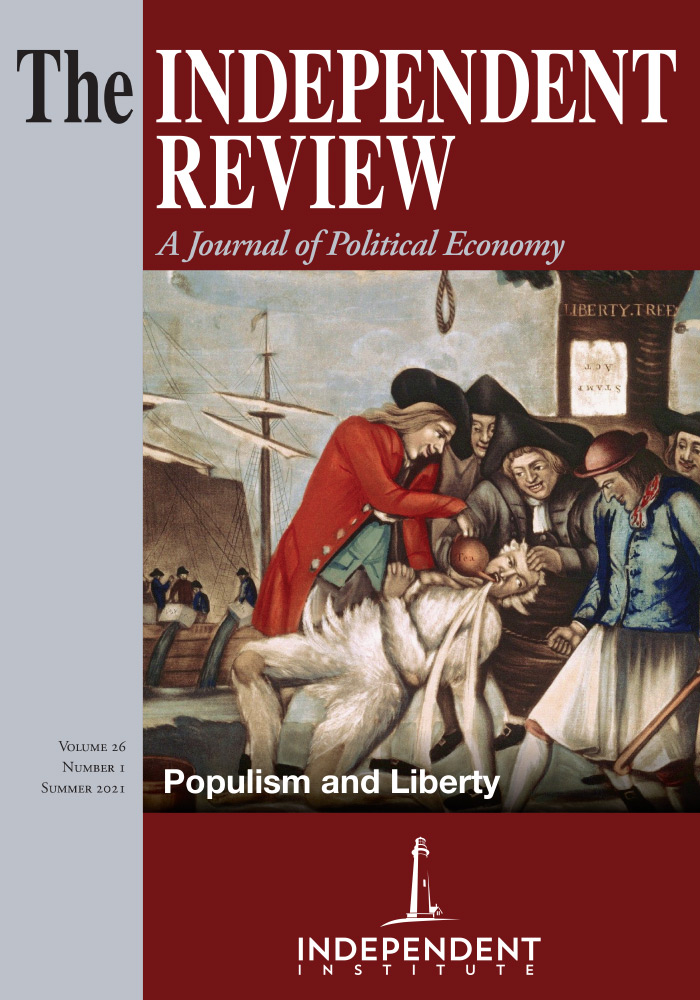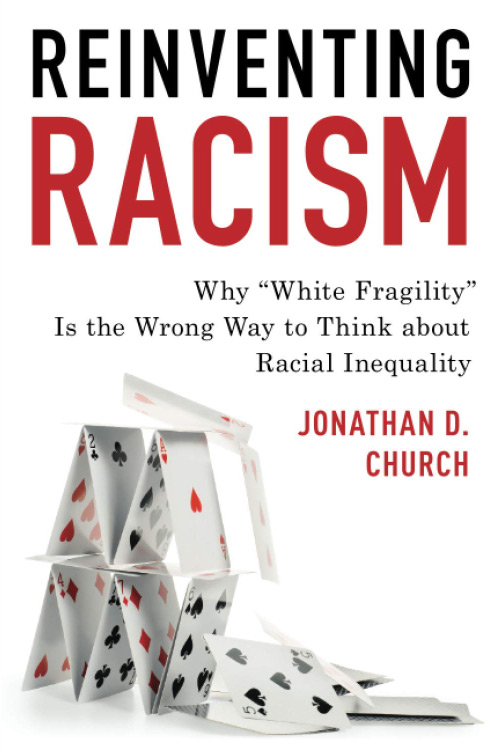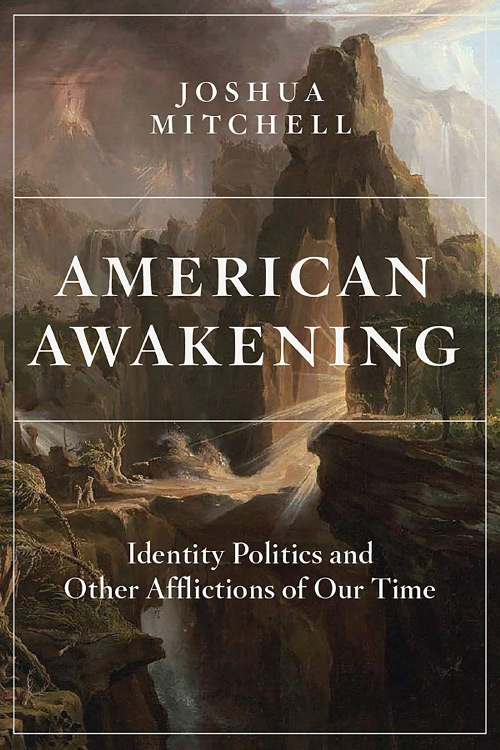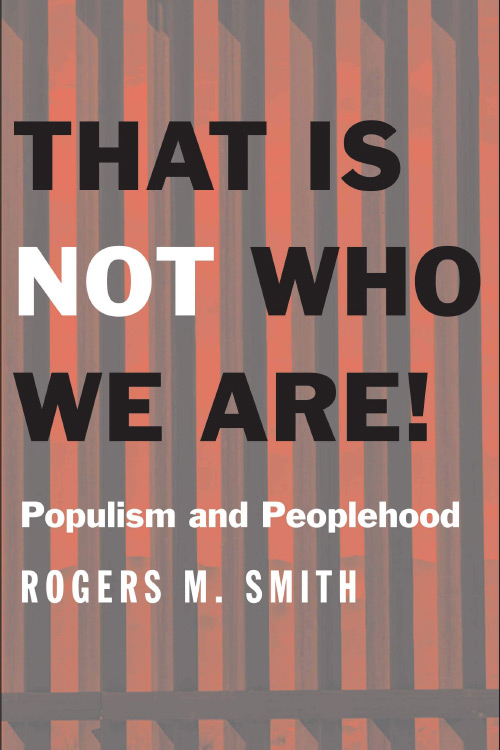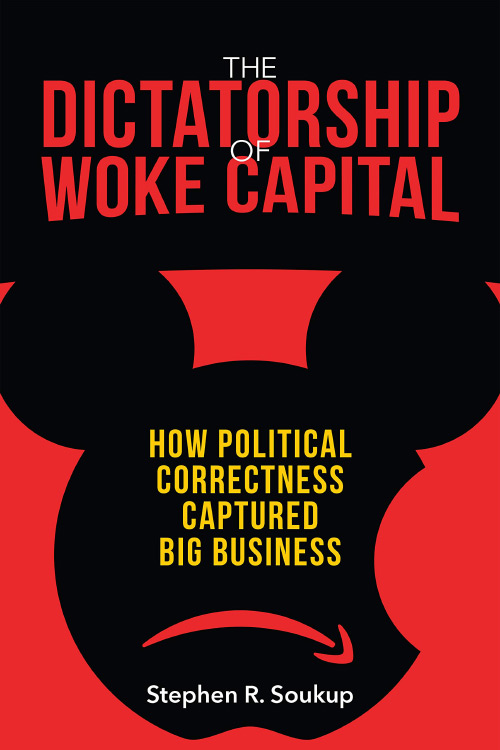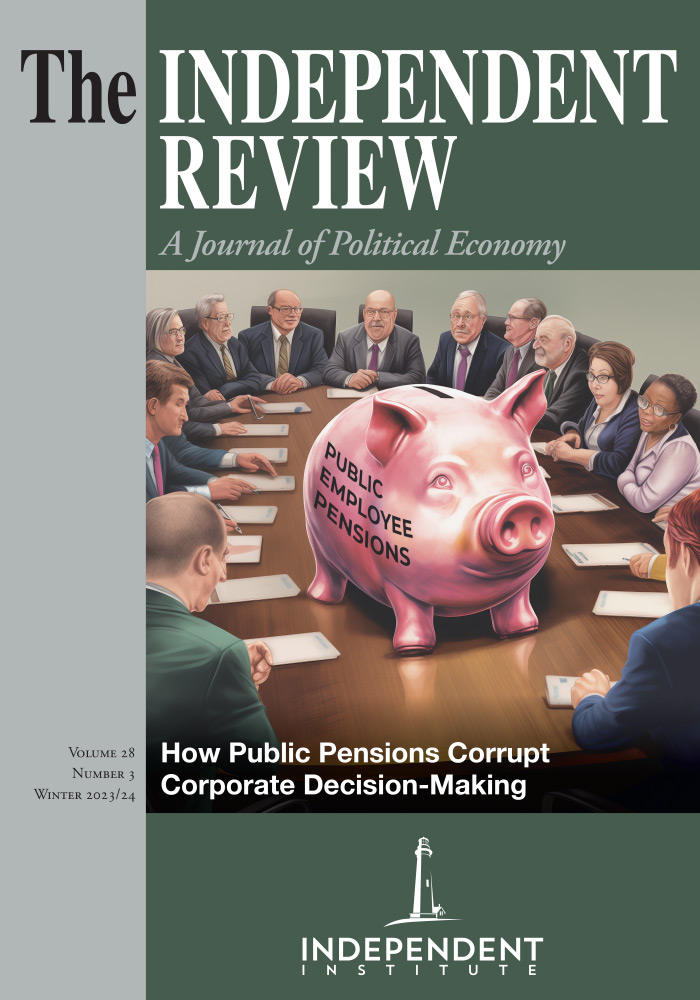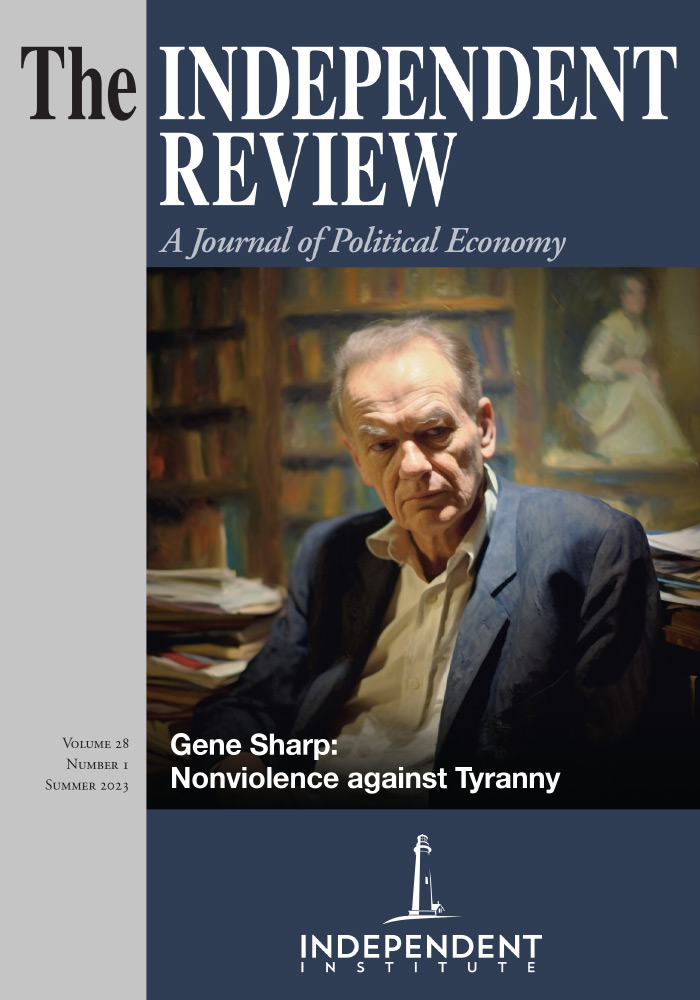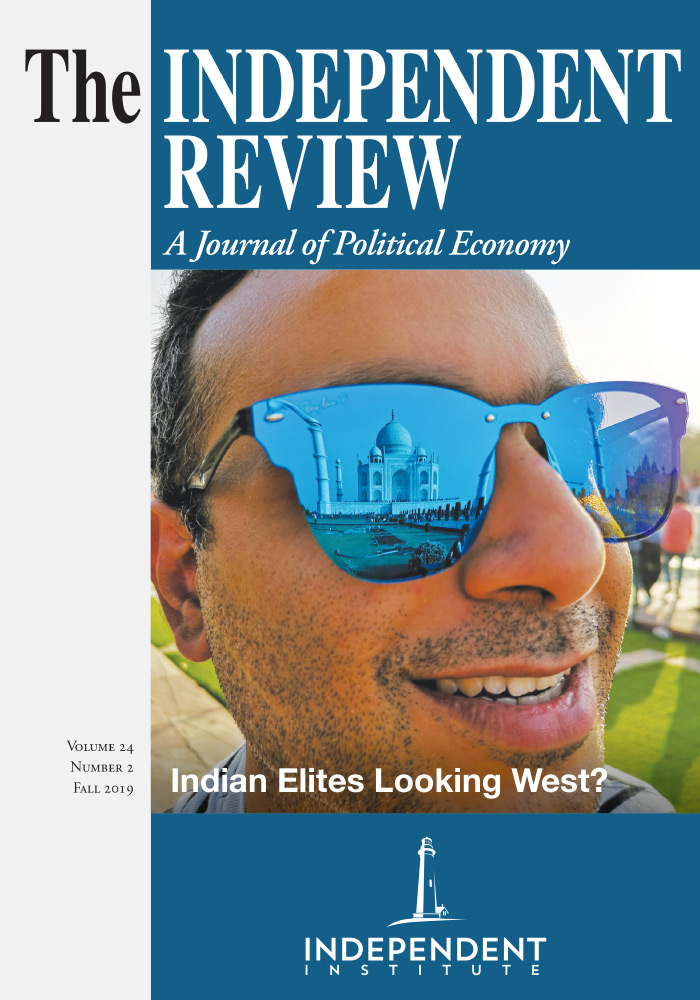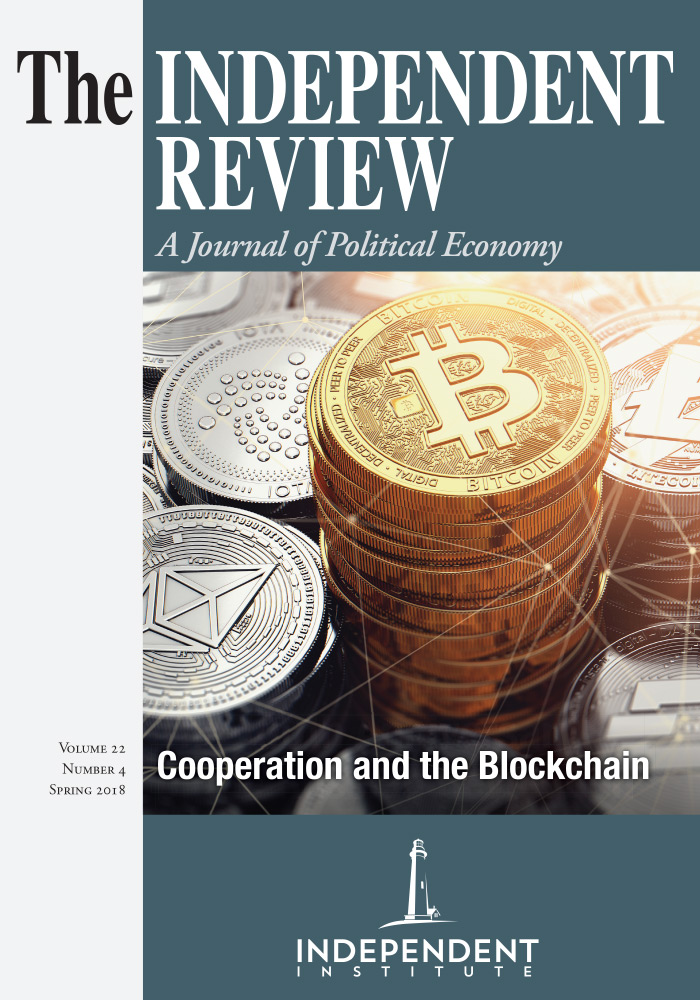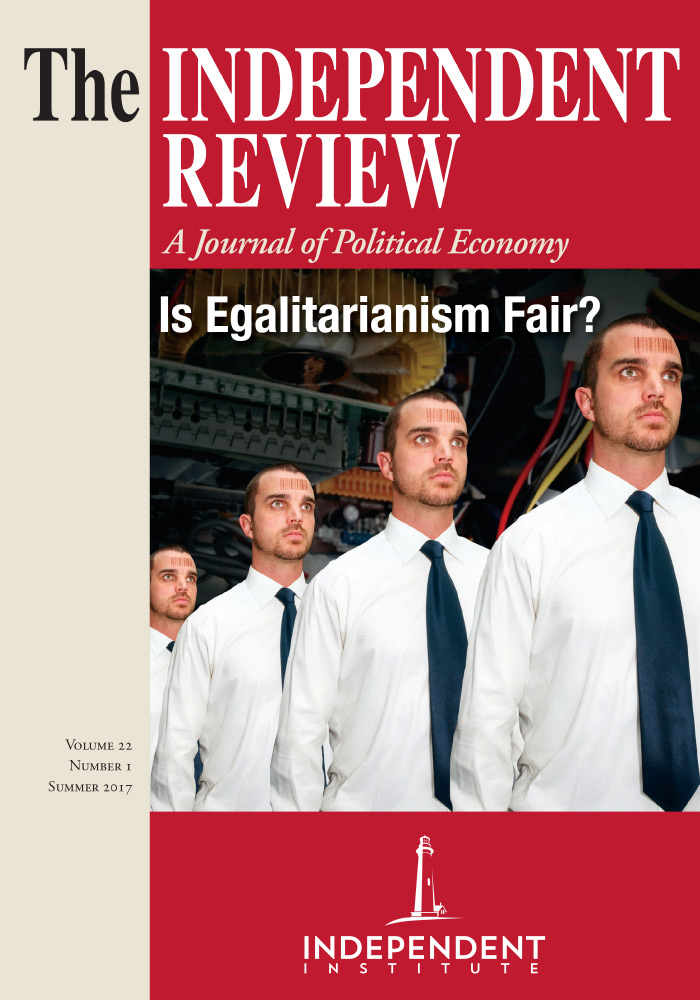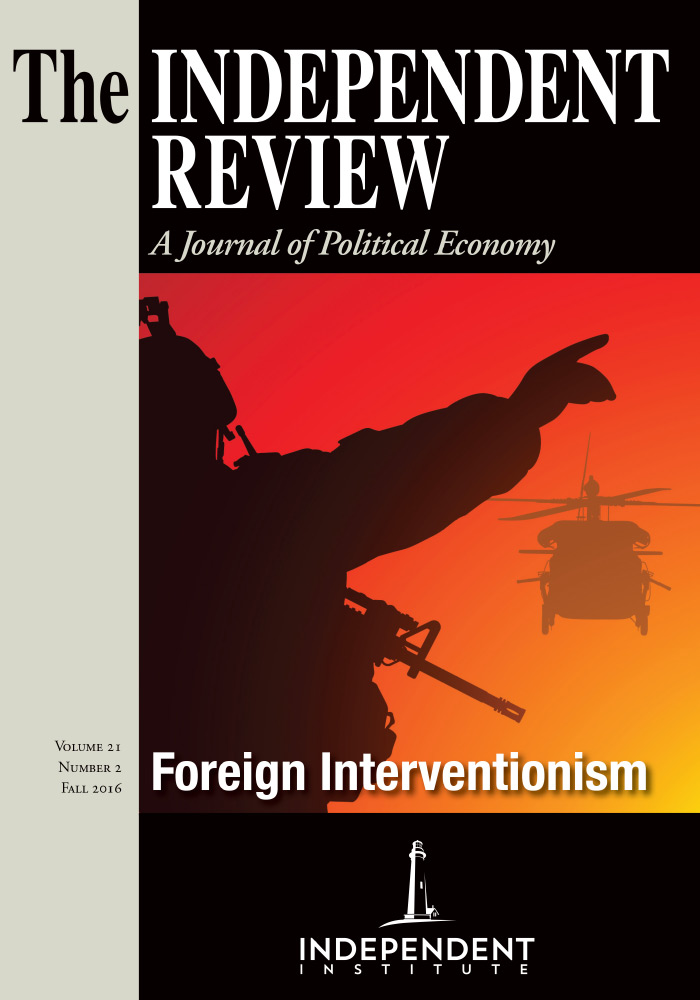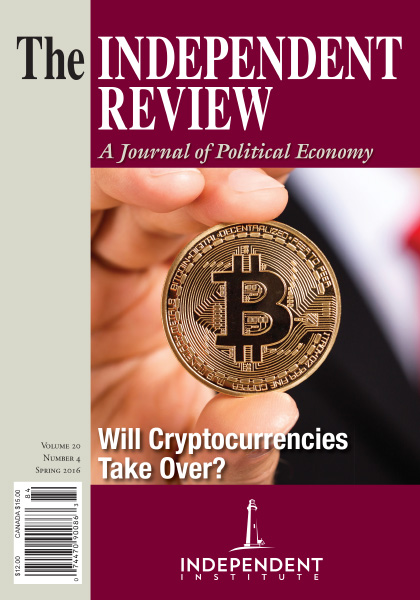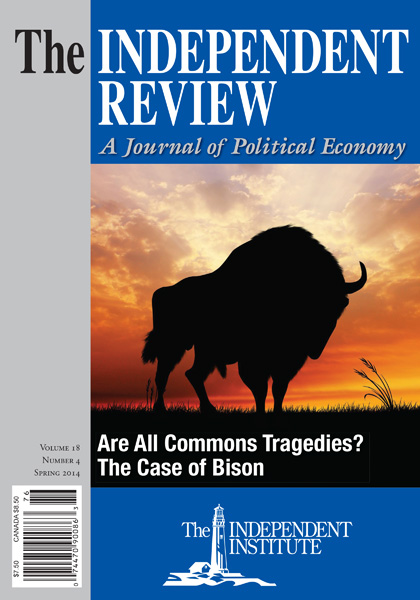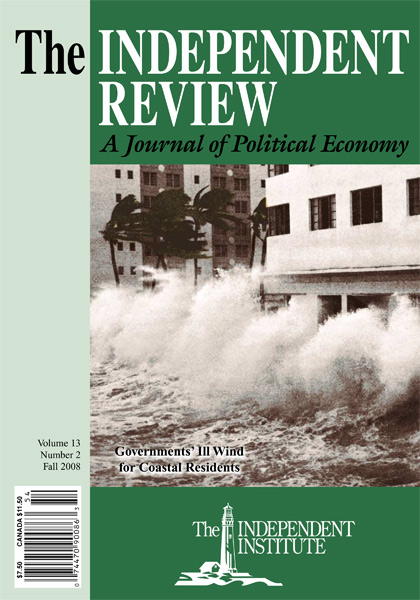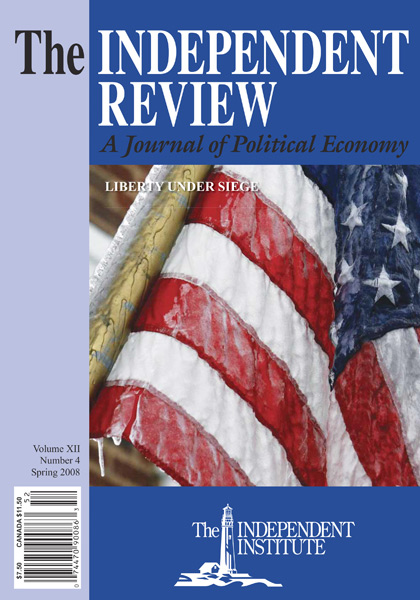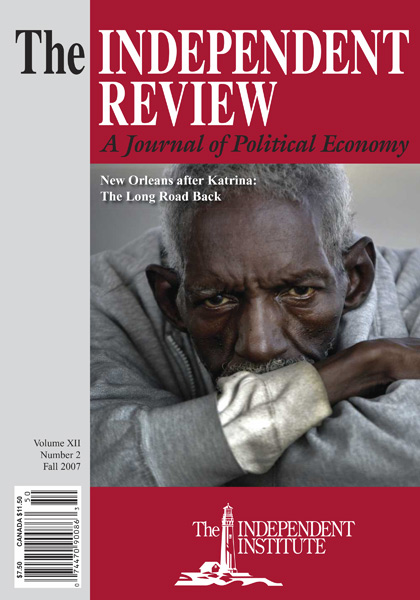In 2015, the University of Pennsylvania political theorist Rogers M. Smith published Political Peoplehood (University of Chicago Press), a book that correctly forecast the rise of “identity politics.” Smith juxtaposed two kinds of “identities,” represented in the Lincoln-Douglas debates that took place in the late summer of 1858. Lincoln represented a “vision of America as engaged in continual furthering of the principles of the Declaration of Independence,” while Douglas advanced a “story of America as an ever-expanding white man’s republic.” The reason we have heard of these two points of view, according to Smith, is not that they were brilliant or novel. Instead, these conflicting identities each attracted “other influential leaders in coalitions,” and expressed “what the actors themselves value and hope to achieve in political life” (p. 34).
Smith’s argument is persuasive: with apologies to Tip O’Neill, all politics is identity. Successful politicians, and political movements, connect with a shared identity that motivates people to act. The “political peoples” of the book’s title are human associations, groups, or communities that are commonly understood (by members and by outsiders) to assert that their members owe:
a measure of allegiance against the demands of other associations, communities, and groups. It is the fact that these associations, groups, and communities are perceived to advance claims to governing authority in competition with others that makes them ‘political’—and the more demanding the claims, the more political the group (p. 2).
Smith draws a line from the Declaration through the Founding to Lincoln, and the ennoblement of the shared identity of a transformative egalitarian ethic: “all citizens are created equal.” That is one American identity, and political movements that connect with it are liberal (including classical liberals, for the most part). An alternative American identity is nativism (at best), or outright white supremacy, elements of which Smith claims (with some cause) to find in the Anti-Federalists, Andrew Jackson, and Stephen Douglas.
In Smith’s new book, That is Not Who We Are! Populism and Peoplehood, he argues that “beneficial stories of peoplehood” (p. 14) are necessary, but not sufficient, to overcome the feral impulses of populism. Most political movements have true believers, but it is a mistake to treat all peoplehoods, or identities, as morally equivalent. Perhaps surprisingly, in the new book Smith wants more than ever to recruit a new generation of “true believers” in service of what he sees as true beliefs: the liberal content of the Declaration of Independence, and the vision of American-as-an-identity inspired by Abraham Lincoln.
In the current atmosphere—including, but certainly not limited to, “The 1619 Project” and other attacks on the values of the Founding—this puts Smith in an odd place (for him): the intellectual right. Unlike those who would “tear it all down” and start over, Smith argues (p. 121) that the system must validate both the long-time grievances of discriminated-against minorities and the new economic grievances of the white working class—because both are legitimate “peoplehoods”—as well as nurture and preserve the essential truths of the Founding.
I started with That’s Not in this essay because Smith is trying to create a “middle,” and he looks rather lonely standing there by himself. Smith is a left-liberal, and is no apologist for right-wing populism. But he worries that an unthinking devolution into ethnic, racial, gender, or other “identity politics” will fail to preserve the essential peoplehood of the American identity, which was painfully constructed over centuries. Second, the fact that many of those Smith labels (in some cases fairly) as white supremacists have also fetishized the Declaration and the Constitution. If opponents of white identity populism decide also to oppose the ideals of the Declaration, and we forget “who we are,” then the cost of identity politics is too great.
The reason to start with Rogers Smith’s “melting pot” (my words) view of identity politics is that it is integrationist, in the broadest sense, and takes seriously the view that classical liberals and liberals alike have long favored what is good, or what is potentially good, about the United States. The other three books I will briefly consider here are less sanguine, but I think that is because they are less integrationist, reflecting to varying degrees a view that there is one “America,” centered on white Judeo-Christian male heterosexual (I’ll call it WJCMH) identity. Any other “identity” (my scare quotes, but I think it’s fair) is a threat to that America if that “identity” becomes political. Further, according to these authors, you should be very afraid, because these identities have become weaponized and political, even though the WJCMH identity was pristine and certainly never political.
Okay, that sounds silly when I caricature it, but it lends itself to caricature. Jonathan Church’s Reinventing Racism is a sensible and (mostly) measured analysis of the “white fragility” claims of Robin DeAngelo (among others, but DeAngelo coined the phrase). The white fragility hypothesis has two parts: first, white people, but particularly WJCMH Americans, have been socialized to believe in their inherent superiority and entitlement. Second, any attempt to reform U.S. market or social systems, even the most reasonable arguments about inequality and disparate treatment, are met with hysterical counterclaims and personal attacks, precisely because those reforms would threaten WJCMH hegemony.
Church offers some plausible points in response. Most tellingly, the “white fragility” argument is often the first response, but is intended to end the argument, rather than be a way forward. It is not helpful to respond to empirical arguments or questions about causation with dismissive “You should educate yourself,” but that’s exactly the atmosphere of debate that the idea of white fragility fosters. Church notes that one might concede that the history of racism, and government bias in administering programs, has had a profound effect in holding back people of color, and yet plausibly ask questions about the specific “hows and whys”: “gathering facts, data, and other evidence in pursuit of an analysis, and then testing hypotheses about the data in accordance with rigorous standards of measurement” (p. 62).
By contrast, when one chooses to wield the “white fragility” argument, the whole point is to deny the value of such analysis, and in fact to claim that the very idea of “objectivity” is a manifestation of “white fragility.”
In contrast, DeAngelo is sure that she has the answers, and is not shy about telling us what she believes has caused these outcomes and keeps them in place. She does call attention to alleged aspects of white racial illiteracy that may be worthy of study, but with an aura of ideological rectitude that converts her concerns not into hypotheses to be examined and tested, but into doctrines to be inculcated (p. 62).
Church argues, to my mind persuasively, that this privileging of the “white fragility” hypothesis converts any counterargument, on any aspect of the doctrine of “educating” white people about anti-racism, into heresy. If someone challenges a simplistic claim, the challenge is (1) known to be empirically incorrect, because claims about white guilt are all obviously true, and also (2) evidence that the person making the challenge is guilty of racism. The only morally acceptable response is quiet, guilty acquiescence: Aggrieved identity, forgive me, for I have sinned.
It is easy to paint this all too broadly, of course. It would be silly, and misleading, to claim that all Republicans have the racial attitudes of David Duke or Adolph Hitler (though I have heard leftist friends make each of those claims, in apparent seriousness). It is likewise misleading to attribute the views of Robin DeAngelo to all those who struggle to reduce racial injustice. (No, I’m not saying DeAngelo is a Hitler of the Left; I’m saying the projection of her views onto anyone who alleges racism is also wrong, but not as wrong.)
But that’s actually congenial with Church’s argument: he freely concedes that there is a massive problem, and that the problem is both morally significant and empirically amenable to mitigation by policy change. Church’s point is prudential: if you honestly seek a transformation of American culture, and practical solutions to the problems of the legacy of racism in education, labor markets, and politics, then attempts to wield “white fragility” as an argument-ending bludgeon are counterproductive. Reformers require that nuances of new policies be worked out using informed empirical information, which will require adaptation and mid-course correction; labeling any discussion as motivated by racism will push reforms off track. Worse, in a democracy the notion that one identity—in this case, WJCMH—is inferior will make it harder to enlist majority support. Depending on the guilt of white people to force compliance with quasi-religious edicts about past sins is less effective than efforts at persuasion and inclusion. Church is not (just) claiming that “white fragility” is empirically exaggerated as a description of the motivation for opposition to particular reforms, but also claiming that the doctrine will fail in achieving its end of effective reform. To Church’s credit, he is careful to insist that the object of those who allege “white fragility” is authentic reform, rather than the extortion of power and rents, and that does lend credence to his claims.
Stephen Soukup, in his book The Dictatorship of Woke Capital, is not convinced of this latter point. But then the object of his analysis is far broader, encompassing “wokeness” rather than the narrow, comparatively academic topic of “white fragility.” The origins of “wokeness” are not important, because Soukup is not seeking to analyze wokeness as a mass political movement, or to gauge the impact of wokeness on college or high school campuses. Soukup wants to examine wokeness as an elite phenomenon, particularly in corporate boardrooms: the dictatorship of woke capital.
Milton Friedman (“The Social Responsibility of Business Is to Increase Its Profits.” New York Times Magazine, September 13, 1970) famously claimed that corporations were not just allowed, and not just legally obliged, but morally compelled to pursue no goals except increasing profits through legal means. Friedman is (tendentiously) misrepresented as having argued that corporations have no social responsibility, but in fact Friedman was directly claiming that the pursuit of honest profits was socially responsible. The contractual charter that creates the corporation creates a fiduciary duty to pursue value for stockholders, and delivering capital gains and dividends to stockholders enables those—now wealthier—individuals to make charitable contributions or develop new business relations that make the world a better place.
Having one centralized bureaucrat—and that’s all corporate CEOs are, folks—impose his or her judgment about what is good for everyone means that the corporation has an artificially depressed price. Perhaps the CEO donated billions to the opera, or to a ranch for orphans in Bolivia. Sure, you can sell the stock, but there is no way to avoid indulging the CEO’s charitable whims, because the lower price already reflects the lost billions. It is both more practically effective, and more morally authorized, to pursue profits and let stockholders make their own choices. The bonus is that this result actually increases the ability of the firm to raise money by selling stock in the first place, and that increases the amount of capital in the system to make labor more productive. It’s win-win-win.
Soukup argues that “woke capital” is not outside pressures on the actions of corporations. Rather, woke capital is the literal takeover of corporate boardrooms and strategies by “religious fundamentalists.” Yes, their religion is wokeness, not a theological view, but it has all the trappings of a religion. The “Church of Woke Capital” is “ESG,” or Environment, Social, and Governance imperatives. The ESG religion is a priesthood of elite “stakeholders,” parasites who advocate for diverting the entrepreneurial energies and capital away from market activities and toward benefits for those the stakeholders claim to represent.
Soukup claims there are two essential types of ESG advocates. The first type of person who wants to make money from investing or running a firm, but who also wants to be seen as the kind of person who cares about “social responsibility.” Their stock in trade is high-sounding public relations scams about recycling, green energy, or affirmative action, with little follow-through and no particular impact. And make no mistake: their stock in trade makes space for trading in stock, as they line their pockets. This type of ESG advocate just wants to stick around long enough to sell off all his or her stock options and get out before the system collapses.
The second type of ESG advocate is not going to cut and run, but is a true believer. This is
the utopian/religious fundamentalist, the kind of investor who believes that he can change the world...[a] modern-day Calvinist, someone who believes that his wealth and success are outward signs of his righteousness. Likewise, he believes that a company’s “value” as an investment is an outward sign of its adherence to the precepts of sustainability...This is the investor who buys stock in the company that makes the ropes with which the capitalists will be hanged, specifically because it will be used to hang the capitalists—the bad capitalists, the other guys, not enlightened, devout guys like him (p. 3; emphasis original).
Okay, I get it. It’s all very scary, and the push for charter corporations that emphasize social responsibility and stakeholder capitalism seems excessive and misguided. But Soukup seems confused about a difference that has always troubled me: the opposite of “woke” leftism is not support for large corporations and concentrated economic power; it is support for free markets and the absence of privilege. The saviors of the movement Soukup wants to lead are Tom Cotton and Josh Hawley, both craven supporters of intrusive industrial policy and subsidies for their political friends.
Soukup’s final appeal, that we should not shift our cultural focus away from “the shared morals of our civilization,” would seem to be premised on the notion that “woke” capitalism is dangerous, but that the “crony” capitalism that exists now approximates the ideal of free markets and perfect competition. That’s not true. I agree that Alexandra Ocasio-Cortez and Mark Pocan are not able to direct resources centrally and that market capitalism is our best bet for the future. But the cynic who publicly supports free and competitive markets, yet chooses at every turn to engage in cronyism, is no better than, and is in fact no different from, the woke warriors Soukup wants us to hate.
Finally, I turn to Joshua Mitchell’s American Awakening. This book is both serious and ambitious; the author explores the combined effects of identity politics, bipolarity, and addiction. In some ways this connects to the notion of “deaths of despair” (Anne Case and Angus Deaton, Deaths of Despair and the Future of Capitalism, Princeton, N.J.: Princeton University Press, 2020; reviewed in the Spring 2021 issue of The Independent Review), but adds the step of considering the political implications. Mitchell spends more than half the book, overall, considering how identity politics causes, and is caused by, the other two social afflictions.
Mitchell’s approach is calm, and sound, and can be summarized (with the risks of simplifying acknowledged) this way: Life is getting better, for most people, by most objective measures. But solving problems of poverty often creates political problems of inequality and envy (cloaked as “social justice” concerns). Increasingly, at least in perception (which is what matters for politics!), improvements in the physical, objective economy lead to problems of transgression and innocence (p. xii).
This problem is compounded by an emphasis, both in culture and policy focus, on measurable criteria for success. Media and social welfare programs alike focus on physical, objective wealth, at the expense of the soul.
Religious enthusiasm—here understood as the acute awareness of our transgressions, and the frenetic search for the cover of innocence—goes with material opulence....But because the economy...is not the only [human value], we are not happier....Furnished with material advances that lift him to unimaginable heights, and haunted by unpaid or unpayable debt from his transgressions, which draw him into wretched darkness from which he cannot escape—that is man (p. xiii).
Mitchell sees traditional cultural Christianity as capable of expiating these transgressions, restoring innocence, and organizing society. But in a secular society, one that has largely put Christianity aside or actively excised religion from the experience of education of our youth, the recognition of transgression and the desperate search for innocence seek another outlet. Again, simplifying, the focus on measurable opulence, achieved by the wealthy and aspired to by everyone else, combined with the tearing down of the traditional religious scaffolding that structured the otherwise invisible lives of our souls, has created a hydraulic pressure that cannot be compressed, but will find expression in some outlet.
That outlet is identity politics, in Mitchell’s view. It is not the only outlet. But like Soukup, Mitchell sees the expression of “wokeness” as taking a religious form. Soukup views this more as either a cynical tactic of the woke, or as a displaced impulse of piety, but Mitchell sees the need for forgiveness and the yearning for innocence as human universals, with wokeness only one of the consequences. The others, of course, are bipolarity—a sensibility unmoored from eternal verities, often diagnosed and in fairness manifested as mental illness—and addiction—the search for meaning, or perhaps the artificial feelings that a life of meaning could give.
Still, much of the book is “about” identity politics. And it is there that the focus of “rendering the invisible economy of transgression and innocence” rests. Identity politics explains all transgressions, and awards innocence, “in terms of relationships between visible groups. White, heterosexual men are either invisible or they are the hidden cause of every visible transgression in the world” (p. xvii). This focus, with its promise of equality and punishment in the earthly plane, creates a gigantic and destructive rent-seeking contest where contestants for compensation compare the size of their past suffering. Where Christianity, in Mitchell’s view, asked believers to accept difference and injustice as consequences of the imperfections of the physical world, the modern focus on materialism without limit has shortened justice’s time horizon: it’s now or never. “Identity politics demands a complete accounting, so that the score can be settled once and for all—or, if it cannot be settled, then held over the head of the transgressors like a guillotine, in perpetuity” (p. xviii).
The implication is clear: Mitchell would claim that the WJCMH has but two choices. One is to acknowledge the historical transgressions (I didn’t do it, and in fact my ancestors didn’t do it, but people who have my skin color did it, at a time and place in the past), and to abase themselves in virtue-signaling without surcease. Or, more accurately, innocence-signaling: I am guilty, because of my skin color, but I am personally ashamed and therefore can be forgiven. The alternative is to fight back, organizing around the focal points that identity politics has forced on us: skin color and (to a lesser extent) gender. The consequence is that white supremacy, or at least white identity politics, especially among men, is an inevitable response to identity politics, rather than the underlying problem that non-white identity politics is trying to solve.
As I said, in trying to summarize Mitchell’s complex argument, I may have myself transgressed, in oversimplifying. But there is one additional point that Mitchell emphasizes, and that deserves mention here. Mitchell rejects, utterly, the claim made by many on the right (and alluded to above) of white innocence. The system of racialized privilege and violence really was embodied in provisions of the Constitution; that system did not end with the abolition of slavery; that system did not end with the Civil Rights movement; and the consequences are very much with us today. Personal claims that “I didn’t do it” are not enough; the transgressions were real, and ongoing. Mitchell’s argument is that identity politics will fail, both in moral terms and in prudential, practical terms, to achieve justice for the aggrieved, because material and political mechanisms for achieving justice cannot accomplish their object.
Mitchell’s alternative solution is “liberal competence,” the shared project of building a set of liberal institutions that cannot be fully foreseen or predicted, but that instantiate the promise of the Declaration of Independence and the virtues of Judeo-Christian morality, including charity. The administrative welfare state, far from being a tool in this project, is an active impediment because it addresses—and, frankly, still fails to solve—only problems of material impoverishment. What is required are the cultural resources that would simultaneously compensate for transgressions, reduce the swings of bipolarity between “you must save the world!” and “you are worthless,” and allow for the construction of alternative communities of meaning that will reduce the impulses that lead to addiction. The title of the book, “American Awakening,” suggests the nature of the solution Mitchell envisions: It’s Tocqueville, and myriad emergent institutions and organizations that supplement our strength as individuals, not Woodrow Wilson or Lyndon Johnson, constructing a bureaucracy that acts as substitutes that require abilities beyond their competence.
Looking back over this essay, I want to apologize to the reader. Considering four books of related but still distinct topic and method, I have done justice to none. You would do well to consider any one of these, as a way of thinking about identity politics. But the two that stand out, in my own view, are the Smith and the Mitchell works. Both call for a return to “who we are” as a solution to problems created by identity politics spinning out of control. Smith’s secular vision of a return to the values of the Founding, expressed through Lincoln’s vision of an entire nation that shares those values, will appeal to those with secular and civic commitments. Mitchell’s spiritual vision of a return to Judeo-Christian values and practice, even by those who are not believers, will likely appeal more to those with religious commitments.
Either way, it is striking that Smith and Mitchell, and in many ways Church and Soukup also, have so many shared conclusions starting from such different political and cultural premises. There must be some common ground. There had better be.
| Other Independent Review articles by Michael C. Munger | ||
| Spring 2024 | Following Their Leaders: Political Preferences and Public Policy | |
| Spring 2024 | The Origins and Evolution of Consumer Capitalism; Crack-Up Capitalism | |
| Winter 2023/24 | The Classical Liberal Diaspora | |
| [View All (79)] | ||

